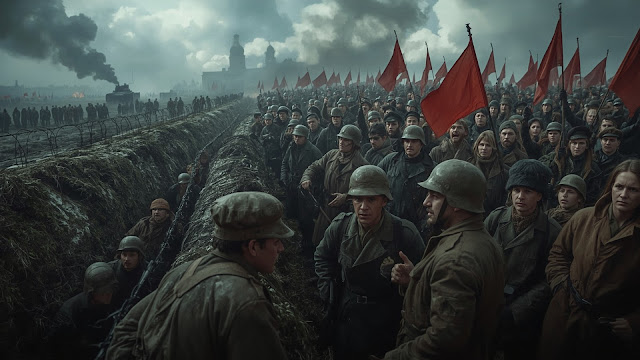Introduction
The early 20th century was marked by imperial ambitions and global rivalries. European powers expanded into Asia and Africa, exploiting resources and people. This competition for colonies, coupled with militarism, nationalism, and alliances, eventually triggered the First World War (1914–1918). Simultaneously, social unrest in Russia gave rise to the historic Bolshevik Revolution.
Colonialism and Imperialism in Asia and Africa
Asia:
-
Britain established dominance in India, Sri Lanka, Myanmar, Singapore, and Malaya.
-
The Opium Wars (1839–42) forced China to open ports to British trade.
-
Japan, Germany, France, and Russia also exploited China’s weakness.
-
Western Asia’s oil reserves in Iran, Iraq, Kuwait, and Saudi Arabia attracted Britain, Germany, and the US.
Africa:
-
European powers divided Africa at the Berlin Conference (1884–85).
-
Britain controlled Egypt, South Africa, and parts of East Africa.
-
France dominated Algeria, Tunisia, Morocco, and West Africa.
-
Belgium captured Congo; Germany, Italy, Spain, and Portugal took other territories.
-
This scramble for Africa intensified global rivalries.
Causes of World War I (1914–1918)
-
Economic Rivalry
-
Germany’s rapid industrial growth challenged Britain and France.
-
Competition for raw materials and markets led to economic hostility.
-
-
Militarism
-
European powers built huge armies and stockpiled weapons.
-
Conscription and military training became common.
-
-
Alliance System
-
Triple Alliance: Germany, Austria-Hungary, Italy (later Turkey & Bulgaria).
-
Triple Entente: Britain, France, Russia (later joined by Japan).
-
These secret treaties created deep mistrust.
-
-
Extreme Nationalism
-
Nationalism turned into aggressive patriotism.
-
Germany under Kaiser Wilhelm II pursued "world domination."
-
Nations glorified war and demonized rivals.
-
-
Role of Media
-
Newspapers published exaggerated, hostile articles.
-
Propaganda fueled hatred and made peace efforts difficult.
-
-
Philosophy of War
-
German thinkers like Nietzsche and Treitschke glorified war.
-
Ideas like “only the strong deserve to survive” justified aggression.
-
-
Immediate Cause
-
The assassination of Archduke Franz Ferdinand of Austria by a Serbian extremist triggered the war.
-
Austria declared war on Serbia, and alliances pulled multiple nations into conflict.
-
The Russian (Bolshevik) Revolution (Brief Link)
While Europe was consumed by war, Russia faced political and social upheaval. In 1917, the Bolsheviks, led by Vladimir Lenin, overthrew the monarchy, establishing a communist state. This revolution reshaped global politics and inspired anti-colonial movements worldwide.
Conclusion
World War I was not caused by a single event but by decades of rivalry, militarism, alliances, and nationalism. The war devastated Europe, reshaped colonies, and set the stage for revolutions like the one in Russia. Together, these events laid the foundation for modern world history.

Indmirable
ReplyDelete